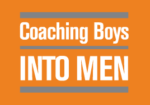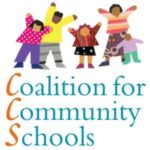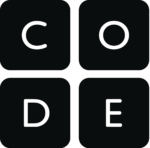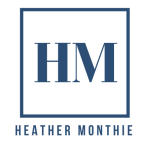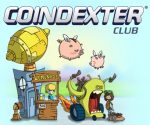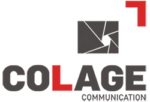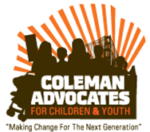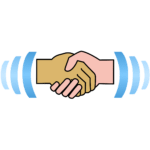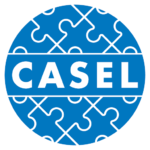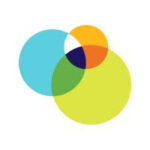CLINIC's Emergency Planning Guide helps you formulate an emergency plan and helps you think through steps you can take before an emergency to best protect your family.
Closing the Gap in Student Performance is an initiative formed by the partnerships of twenty-five different agencies that include: local non-profits, faith-based charities, schools and government agencies to establish community partnerships in specified schools within the Buffalo Public Schools District. The initiative addresses the non-academic barriers that affect families and hinder academic success.
Character education lessons from Charlotte-Mecklenburg Schools that have the gowl to unite students, parents, teachers, and the community leaders to promote acceptance, achievement, and accomplishment.
Provides athletic coaches with resources to promote respectful behavior and prevent relationship abuse, harassment, and sexual assault
The Coalition for Community Schools is an alliance of national, state and local organizations in education K-16, youth development, community planning and development, family support, health and human services, government and philanthropy as well as national, state and local community school networks. They seek to mobilize the resources and capacity of multiple sectors and institutions to create a united movement for community schools.
Advocating the right of youth to be informed about and in control of their own bodies
At CODE, there are plenty of free resources that provide information to teachers, volunteers, parents, etc. to learn about coding and how to teach it to students of all ages.
Code with Google helps educators give their students confidence in computer science, advance their skills, and prepare them for the future. CS First is a free computer science curriculum that anyone can teach. Designed for students ages 9-14 of all interests and experience levels, students learn collaboration and core computer science concepts as they create their own projects. Educators lead the way with easy-to-use lesson plans, tutorials, activities, and resources.
After signing up for this free website, anyone can learn how to code better! Here, students can learn and practice how to build websites and web pages, something that can give them an edge in our technology driven culture.
CodeHS provides training and information to students at school or at home to learn how to code correctly.
These are some free resources available on the internet to help children learn to code either in your classroom or in your own family. If your school participates in Hour of Code, these are some awesome sites to use with your students. The younger groups may need a little more assistance understanding directions as sometime things can be written at a higher reading level that they may be. This site has broken the list out by K-8 resources and 9-12 resources. They highly suggest anyone starting out to start with some block programming or drag and drop websites as this can help ease frustration with spelling errors or mis-typed characters. So, even if you’re an adult some of the younger kids resources might help you a bit!
Coindexter Club is geared to children between the ages of five and twelve years old to learn about finances through means of a virtual world. Coindexter educates children on how to earn, save, spend, and manage money through fun games and activities.
A national movement of children, youth, and adults with one or more lesbian, gay, bisexual, transgender and/or queer (LGBTQ) parent/s. We build community and work toward social justice through youth empowerment, leadership development, education, and advocacy.
Coleman Advocates for Children and Youth works to improve the lives of San Francisco’s children, youth, and families for over 30 years. They are a successful a member-driven, community-based organization of working families, youth, advocates and service providers.
This report aims to put policymakers and program operators on firmer ground as they make these decisions by sharing lessons learned about the design and content of existing school-based, after-school programs.
CASEL is a not-for-profit organization that works to advance the science and evidence-based practice of social and emotional learning. The report, SEL and Bullying Prevention, illustrates the relationship between social and emotional factors and bullying
Collaborative for Children works to improve the quality of early care and education through programs for families, educators, and communities. Programs available are Strengthening Families, Improving Learning Environment and Empowering Educators, Inspiring Community Action and Awareness, and Transforming Neighbors.
MOST's College and Career Readiness Toolkit is a comprehensive guide to help middle and high school out-of-school-time programs get laser focused on building 21st century skills and supporting young people as they navigate through the complex world of planning for their advanced education and careers.
Check back for free and low cost professional development resources including videos, online courses and opportunities for live virtual training.
The College Board promotes excellence and equity in education through programs for K–12 and higher education institutions, and by providing students a path to college opportunities, including financial support and scholarships. You will find resources geared towards the education community through research and advocacy on behalf of students, educators, schools and colleges.
College Grazing offers interactive self-discovery surveys to help you identify your college needs and desires. Based on the premise that self-awareness will lead to better college decisions, College Grazing offers immediate feedback about your college preferences, readiness, characteristics and much more.


